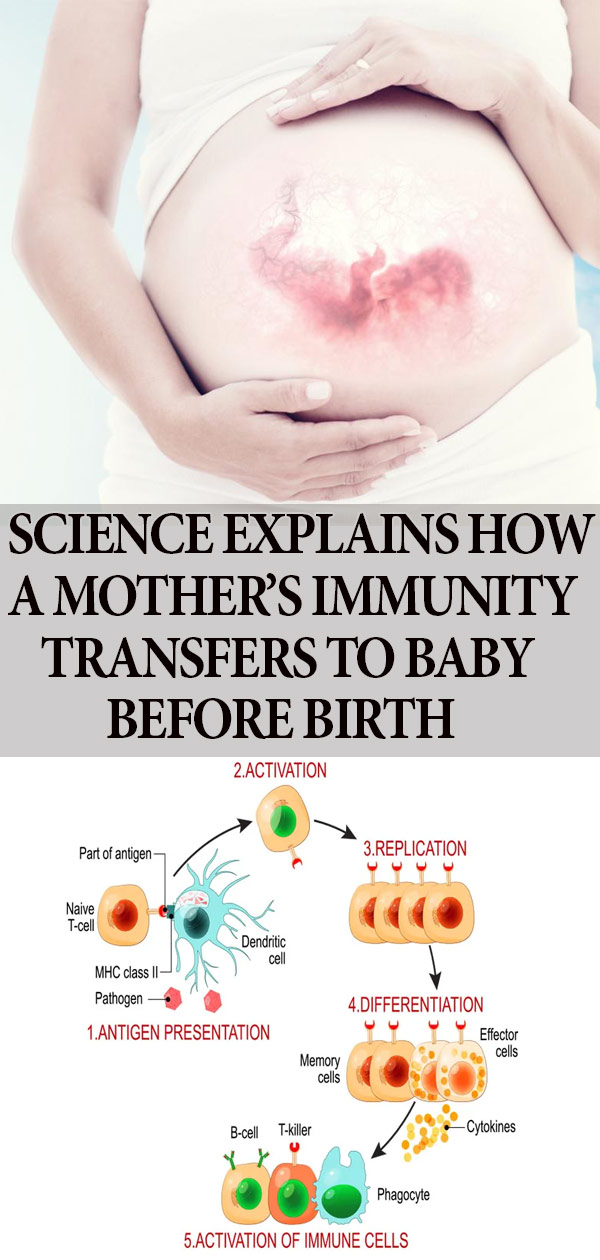The parents of a newborn baby couldn’t be more thrilled. After all, they have a new bundle of joy in their arms to love and cherish! But being a new parent also comes with its fair share of anxieties – and for good reason! One worry they don’t need to have is immunity. Baby is born with the strength of the mother’s immune system.
Babies are fragile and new to the world. Their brains are still developing, as are the rest of their bodies. They don’t know what’s dangerous and what isn’t, and, even more worryingly, they are much more susceptible to infections and disease.
The answer to protection against preventable diseases is usually vaccinations. But newborns cannot have most of the vaccines that can protect them as their immune systems are not strong enough to respond positively to them. This is where maternal vaccines come in, administered to pregnant expectant mothers to boost a fetus’ immunity.
But there’s a limit to the capabilities of the transference of a mother’s immunity to their babies. As such, researchers are always looking to find new ways to improve this link – and a recent study indicates that may be possible.
Science Explains How A Mother’S Immunity Is Transferred To Her Child Before Birth
1. Risks To Newborns Without A Mother’S Immunity
Newborn babies are extremely fragile in health. In their first 28 days of life, they are at high risk for developing severe conditions that can lead to fatalities. Birth complications, asphyxia, and infections make up a shocking 80% of causes for neonatal death. Infant mortality rates can be anxiety-inducing as well, with figures like:
- In the first 28 days, 18 in 1,000 babies will pass away.
- After the first 28 days but before they turn one year old, 12 in 1,000 babies will pass away.
- After the age of one but before the age of five, 5 in 1,000 children will pass away.
While trying to use a mother’s immunity to protect a baby may not work for certain complications, fatalities through infection can be greatly prevented through them. In order to understand this, let’s take a deeper look at how viral infections can become deadly in newborns.
Newborn babies cannot receive vaccinations, with most only starting administration when they reach 2 months of age. Babies’ immune systems are not yet strong enough to safely receive vaccines, but they are also not strong enough to protect themselves against potential threats. This means the double threat of a weak immunity with an inability to receive vaccines puts them at high risk.
Baby Vaccination Schedule
The general vaccination schedule for a baby, until they reach 15 months of age, is as follows:
- After birth: Dose 1 of Hepatitis B vaccine
- Between 1 and 2 months: Dose 2 of Hepatitis B vaccine
- 2 months: Dose 1 of:
- Diphtheria, tetanus, and acellular pertussis vaccine
- Rotavirus vaccine
- Haemophilus influenza type b vaccine
- Inactivated poliovirus vaccine
- Pneumococcal conjugate vaccine
- 4 months: Dose 2 of:
- Diphtheria, tetanus, and acellular pertussis vaccine
- Rotavirus vaccine
- Haemophilus influenza type b vaccine
- Inactivated poliovirus vaccine
- Pneumococcal conjugate vaccine
- 6 months: Dose 3 of:
- Diphtheria, tetanus, and acellular pertussis vaccine
- Pneumococcal conjugate vaccine
- Between 6 and 15 months: Annual influenza vaccine, and dose 3 of:
- Hepatitis B vaccine
- Inactivated poliovirus vaccine
- Between 12 and 15 months: Additional dose of:
- Haemophilus influenza type b vaccine
- Pneumococcal conjugate vaccine
- 15 months: Dose 4 of Diphtheria, tetanus, and acellular pertussis vaccine
Additional dosages may also be required for a variety of these vaccines, but that depends on the individual baby and their doctors best orders. At any time after 6 months, babies may also receive vaccines against:
- Varicella
- Measles, mumps, rubella
- Meningococcal
- Hepatitis A
But what happens until then? Do you just have to stomach the risks with positive thinking and hope for the best while doing all you can to shelter your child? According to a new study, you may not have to do so for long.
2. How A Mother’S Immunity Can Be Transferred
The research entitled “Fc Glycan-Mediated Regulation of Placental Antibody Transfer” was published at the end of June in the journal Cell, explaining how this seemingly impossible feat can be accomplished with positive results. The study authors, in alphabetical order, are as follows:
Study Authors
- Aniruddh Sarkar
- Arnaud Marchant
- Arthur Y. Kim
- Barney S. Graham
- Carolyn M. Boudreau
- Cormac Cosgrove
- Douglas Lauffenburger
- Francesca J. Noelette
- Galit Alter
- Georg M. Lauer
- Ilona Goldfarb
- Jasneet Aneja
- Jennifer H. Cooperrider
- Jishnu Das
- Joelle Brown
- Laura E. Riley
- Madeleine F. Jennewein
- Marina Krykbaeva
- Matthew J. Gorman
- Sepideh Dolatshahi
- Stephanie Fischinger
- Tessa Goetghebuer
- Todd J. Suscovich
To begin with, let’s talk about what mothers already pass on to their children. When they first develop, fetuses are completely clean slates – their immune systems are clueless as to what they need to defend against. A mother’s placenta forms in order to provide antibody transference to these fetuses, providing them with protection against a variety of threats.
Maternal Antibodies
In some cases, maternal antibodies from a placenta can be easily moved to the baby within, serving as one of the first examples of a mother’s immunity being transferable. But for diseases like polio, that immunity becomes harder to pass on.
The researchers wondered if the placenta may hold the key for a mother’s immunity, and therefore, they decided to investigate. They used systems serology, which is a highly innovative tool designed for vaccine and immunity research, to analyze antibodies from certain blood samples, taken from umbilical cords and mothers.
These antibodies were ones used against pertussis, and scientists compared them against each other in quality and quantity. Findings revealed that the placenta actually can sift through certain antibodies and deliver them to infants, leading to the activation of cells known as natural killer cells. These natural killer cells are crucial in the formation of a working immunity.
These types of cells are apparently the most functional of all cells involved in immunity and are therefore the most effective. They are also the most abundantly found in newborns, making them the more reliable of the available immune system cells.
Researchers discovered that placentas can transfer certain antibodies that are designed to trigger natural killer cells against conditions such as respiratory syncytial virus and influenza. This indicates that future vaccines can be designed with this in mind, allowing for the encouragement of the right antibodies transferring from a mother’s immunity to their children.
Moving Forward
What’s next for this research to continue in a positive direction? The goal is to be able to make maternal vaccines, injected during the correct and most effective time during an expectant mother’s pregnancy. This can be done to provide much-needed assistance to babies, protecting them in ways that were not previously possible. The researchers are also currently studying immunity in infants to create even more effective vaccines.
3. Current Ways To Improve A Baby’S Immunity
Sure, we all know that a healthy diet and exercise are crucial for immunity. But when your baby is brand new to the world, these things don’t apply to them the same way. They are completely reliant on you! So how can you ensure that you are keeping them safe and protective? How can you set your fears to rest and focus on positive thinking?
Here are a few tips that you can use to ensure that your baby is as protected as can be:
· Keep Them Warm
The cold can wreak havoc on anyone’s immunity. It’s why so many people fall ill after being in low temperatures. As such, you’ll want to keep your little one warm. Just a bit of a cold can lead to a huge degradation of their immune system.
· Go For Balanced Foods
Newborn babies don’t eat proper foods yet – but if you’re breastfeeding, they eat from you! This means that you have to make sure that the food you’re consuming is good, so you can pass nutrients onto your little one.
Breast milk on its own is already very nutritious, but being extra mindful of what you eat can really aid the immunity of your baby. Here are some foods to opt for:
- Sardines
- Salmon
- Organ meats
- Broccoli
- Nuts and seeds
- Shellfish
- Pork, beef, and lamb
- Eggs
- Cabbage
- Kale
- Seaweed
- Potatoes
- Quinoa
- Tomatoes
- Dark chocolate
- Garlic
- Oats
- Berries
- Buckwheat
· Maintain Distance From Others
When you have a new baby, many people in your life will want to hug them, cuddle them, and even kiss them. Unfortunately, adults can carry a lot of viruses that are harmless at their age, but dangerous for young kids.
Though it isn’t extremely common, plenty of cases show that babies can quickly become ill without a mother’s immunity or any vaccines. Your best bet is to keep other people’s interactions with your baby at a minimum for the first month, and prevent anyone from kissing them!
· Establish Routines
Your baby should have a regularly well-scheduled bedtime and wake-up time. Just like with adults, your baby needs regular sleep and wake cycles. Without sufficient rest, they can quickly become tired and fall ill, and with too much rest, it’ll be harder for them to get to sleep later.
· Give Them Fresh Air
Fresh air can relax babies, and it aids in the clearing of their lungs. Being out in the sun can also make them get some added vitamin D, which will help them to get stronger. Just make sure that it’s not too hot out – use a hat if necessary!
· As They Grow Older…
Once your baby is no longer a newborn, you’ll be able to relax a little, but you’ll still have to keep an eye on them and their immunity as they navigate their first precious years of life. You should:
- Teach proper hand-washing and cleanliness habits
- Ensure all vaccinations are received on schedule
- Make sure they eat a balanced diet
- Make sure they drink plenty of water
- Encourage regular exercise
Final Thoughts On How A Mother’S Immunity Is Transferred To Her Child Before Birth
It’s easy for parents to worry significantly for the safety and health of their newborns, especially in the first few crucial weeks. With these new findings, many of these fears can be alleviated. Though more research is needed, these building blocks can serve as the needed boost for the medicine to advance far enough to make this possible.
Until then, you can do your best to keep your children safe. Make sure they get their vaccinations on time. Keep them active and give them balanced meals. Ensure their hygiene is kept up, regulate their temperature, and take them to a doctor if you’re ever in doubt!


